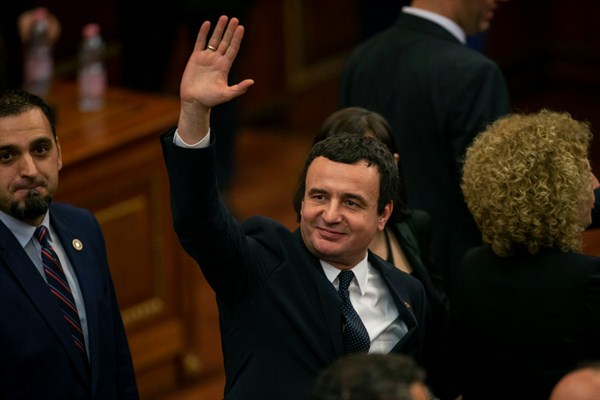“The citizens of Kosovo voted massively for change,” said Albin Kurti, the country’s newly installed prime minister. “Kosovo is ready to turn a new page.” He may be right, but will they and their neighbors throughout the Balkans actually see that transformation, if their leaders can’t put the 1990s and the troubled years since behind them?
In exclusive comments to WPR, Kurti said that countries in the Balkans “are still suffering from the past while struggling to build the future.” A few years ago, Kurti was leading his fellow lawmakers in setting off tear gas amid a protest in Kosovo’s parliament, for which he received a suspended prison sentence of 18 months. Now, “Kosovo’s Che Guevara”—a name he picked up back in the 1990s when he led student protests against Serbia’s repression of ethnic Albanians—has the responsibility of leading its stalled push for international recognition, managing its troubled relations with neighboring Serbia and addressing internal challenges of corruption, poverty and weak public services.
Kurti was appointed prime minister on Feb. 3, nearly four months after his political party, Vetevendosje or “Self-Determination,” topped the polls in a snap election, winning just over 26 percent of the vote. Vetevendosje finally struck a deal for a coalition government with the Democratic League of Kosovo, an established moderate party, which came in second at the polls with 24 percent. The coalition also includes junior partners from smaller parties representing several ethnic minorities, including ethnic Serbs, as required by the constitution—among them the Serb List, a party backed by the government in Belgrade, which has been at loggerheads with Kurti and Vetevendosje. Its inclusion was one of the stumbling blocks to forming a government.

